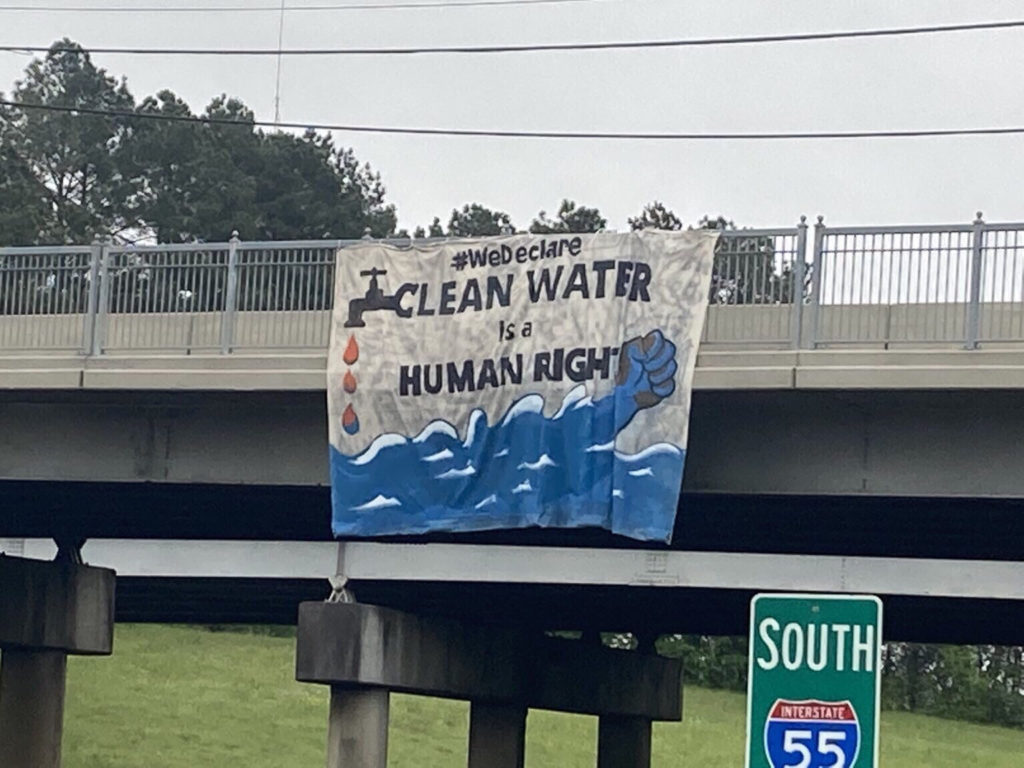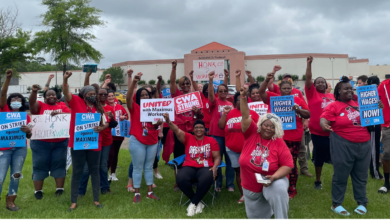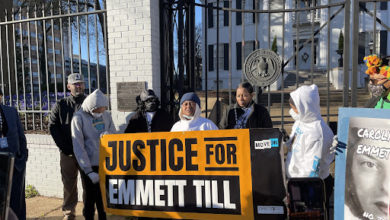Representatives in Mississippi’s state legislature approved $3 million to repair the state’s water system including 46.7 million for the city of Jackson earlier this month. As of now, it is unclear how these funds will be spent.

On April 13, the city approved $1.2 million to repair the O.B. Curtis water treatment facility. This was after it was revealed that the Environmental Protection Agency, sent an emergency administrative order demanding that the city to fix its water system.
The order detailed the city’s long standing water problems such as equipment failures and understaffing. It also cited health concerns like the potential for E. Coli and other pathogens in the water, which can cause symptoms such as diarrhea, nausea, cramps and headaches.
The money approved by the city council only repairs one facility, while these problems are in all of Jackson’s water treatment facilities.
Jackson City councilmember Kenneth Stokes has advocated for the privatization of Jackson’s water system. When talking about solutions, Stokes said, “If something different means we need to get private companies in here to run our water plant, then so be it.” (WLBT3)
But the solution is not privatization. When municipal water systems are privatized, water bills rise for the residents because state regulators let private companies earn a profit. Under capitalism, it is guaranteed that profit will be prioritized over public safety.
Because of privatization, pipes in Missoula, Mont., leaked so badly that half of the water flowing through its pipes was lost.
The truth is that all of the solutions offered by those in office are either not enough, or directly in conflict with the people’s interests. The city needs more funding and the money is there.
The money from the federal, state and local government is much less than the estimated $2 billion necessary to permanently fix the city’s damaged and aging water system. Lack of funding has been an issue for Jackson’s water infrastructure for decades.
For more than 40 years, federal funding for water infrastructure in cities all across the United States has decreased. In 1977, federal support accounted for 31 percent of cities’ total water utility spending. In the present day, it only accounts for 4 percent of spending. So for cities like Memphis, New Orleans, and Jackson, their pipes have been neglected for more than four decades. As a result, over 60 million people are exposed to unsafe drinking water each year. This is a longstanding health crisis that will take a lot of federal and state funding to resolve.
The water crisis that came as a result of February’s winter storm was the result of long term issues, and it will take comprehensive solutions to fix it. As mentioned before, it would take $2 billion to fix Jackson’s water system, making safe, and public drinking water for Jackson’s residents — not paying for water bottles or filters, just quality public water. This may be a basic necessity and human right, but where would we get the money? Why not look up at the people who suffered the least during Jackson’s water crisis. In addition, look where the city, state, and federal governments have already been spending money.
Mississippi has 47,279 millionaires. It would be safe to say that they have not been feeling the worst effects of Jackson’s water crisis. Just a 1 percent tax on them for the water pipes would produce $472 million. For Mississippi’s 2 billionaires, whose cumulative net worth amounts to $2 billion, a 2 percent tax would amount to approximately $40,000,000.
Now, let’s tax some corporate profits. The Mississippi-based Sanderson Farms, the third largest poultry producer in the United States, also produces $2.8 billion in annual profits. That is approximately an extra $40 million with a 2 percent tax.
Nationally, millionaires and billionaires saw their wealth go up by $1 trillion and collective net-worth increase by $4 trillion. A 2 percent tax on that collective net worth alone would amount to an additional $80 billion.
Just taxing the millionaires, billionaires, and Mississippi’s largest employers would be more than enough to fix Jackson’s pipes. This is much more than the $50 million that would be allocated to Jackson from the federal and state government.
But what is the local and state government spending money on? The budget for Jackson’s police department is approximately $32 million. Defunding Jackson’s police department by 25 percent would produce $8 million in revenue. The state also spends $2 million to CoreCivic, a private prison company that also houses undocumented immigrants. CoreCivic is notorious for its horrible conditions and human rights abuses in their facilities in Tallahatchie and Adams Counties; one example would be ICE agents torturing Cameroonian immigrants in Adams County. Another example would be 80 percent of inmates from Vermont testing positive for COVID-19 in Tallahatchie Correctional Facility. There are better uses for Mississippi’s money than to keep funding human rights abuses in Mississippi’s prisons; that money can go towards water and other much needed services.
On the federal level, the government definitely has the funding to repair Mississippi’s water system. The United States government’s “defense” budget is as high as the next seven countries’ military expenditures combined. Congress also gave $738 billion for defense spending, to bankroll war and occupation abroad.
The bottom line is that there is enough money to fix Jackson’s water problem; there is just not the political will from politicians at the city, state, and national level. In Mississippi, as with the United States as a whole, profits are prioritized over people. In order to reverse this reality, and get the rich, the corporations, and government to help fix Jackson’s pipes, then the people must start demanding the government to hand it over at all levels.






